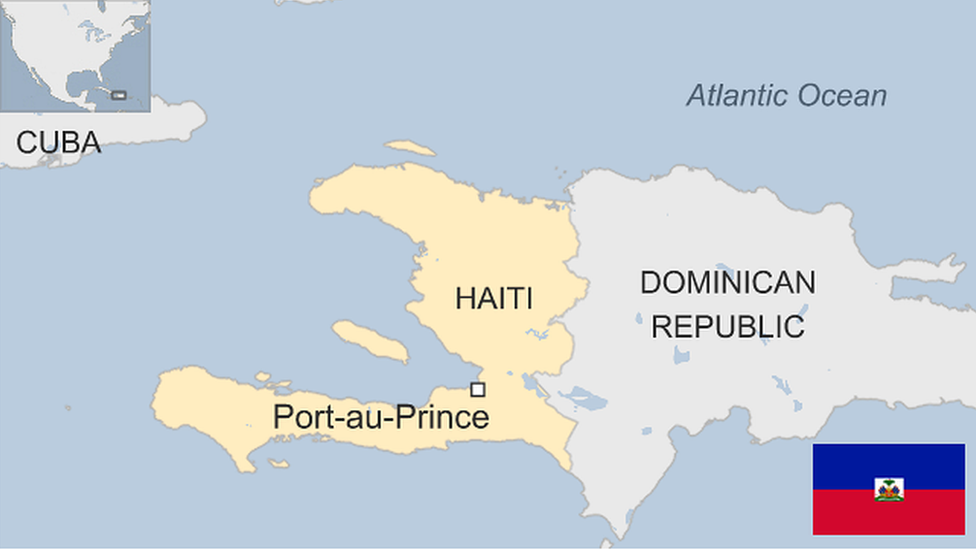Oxfam scandal: UN aid agencies fear backlash
- Published
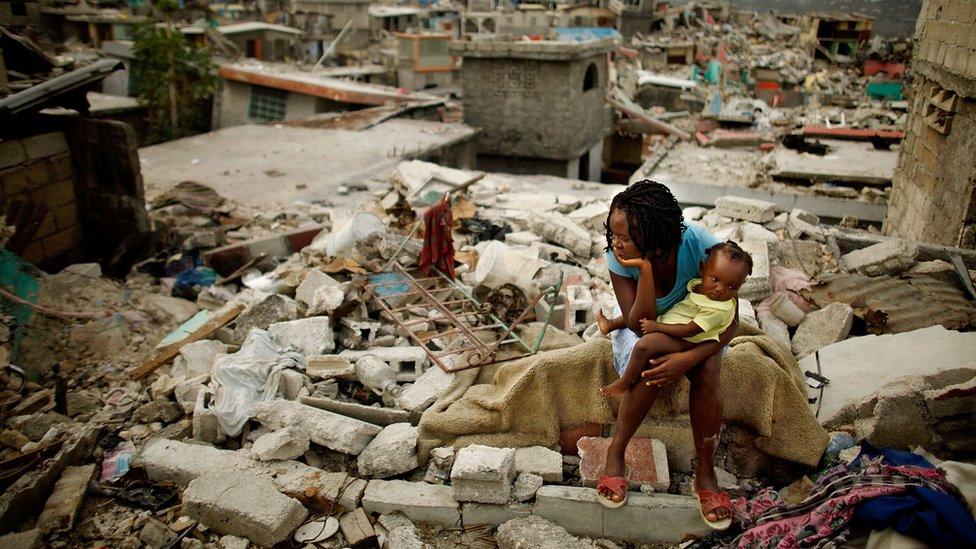
Oxfam staff are accused of paying vulnerable people for sex in Haiti in 2011
The news that Oxfam staff used prostitutes in Haiti has led to renewed focus on how the aid sector works, and what measures are in place to prevent abuse by aid workers.
Headlines like "Oxfam faces new sex scandal in South Sudan" are certainly not flattering, and they come at a time when many countries are debating cutting foreign aid.
How does this square with the more standard view of an aid worker: the selfless humanitarian who works in the most difficult conditions in order to improve the lives of the most vulnerable?
Of course, there are no perfect saints, and probably no perfect sinners either, in any organisation.
But the UN, which regularly uses organisations like Oxfam as implementing partners, is now struggling with a problem many suggest it should have addressed more publically decades ago.
This week in Geneva, UN aid agencies took care to express their zero tolerance approach to sexual abuse.
"Every single report or allegation of sexual exploitation, harassment, or abuse is thoroughly assessed," said Andrej Mahecic of the UN Refugee Agency. "If substantiated it leads to sanctions and summary dismissal."
"We are in the process of introducing mandatory training for all staff, using existing UN courses on the prevention of sexual harassment and exploitation," added Tarik Jasarevic of the World Health Organisation.
But is this enough? Andrew MacLeod, a former UN worker who has been highly critical of the UN system, believes they should have been more active long ago. "No one working in aid will be surprised by this," he said.
"This is not just an issue about Oxfam, it's an issue in all aid agencies all over the world."
Sensationalist headlines?
Since the Oxfam scandal broke, Mr MacLeod has given numerous interviews, and provided an assessment to the tabloid newspaper The Sun which ran the headline "UN aid workers raped 60,000 people".
Asked by the BBC to substantiate the figures, Mr MacLeod said: "I'm not claiming that to be a number of science."
So where did he get it? By looking at UN figures for 2016, he explained, which suggest there were 311 cases of sexual abuse by UN peacekeepers during that year.
A further suggestion by the UN that the numbers would be higher led him to double that annual figure, and then multiply it by ten because generally only about 10% of rape cases are reported.
That brought to him an approximate figure of 6000, which he then multiplied by ten again to cover a ten year period.
"Sensationalist and bombastic, zero creds," was the reaction of one female aid worker with years of experience in the field. "Not the experience of any aid agency I have ever worked with."
Nevertheless, the UN knows it must now be much more transparent about what it is actually doing to combat cases of abuse.
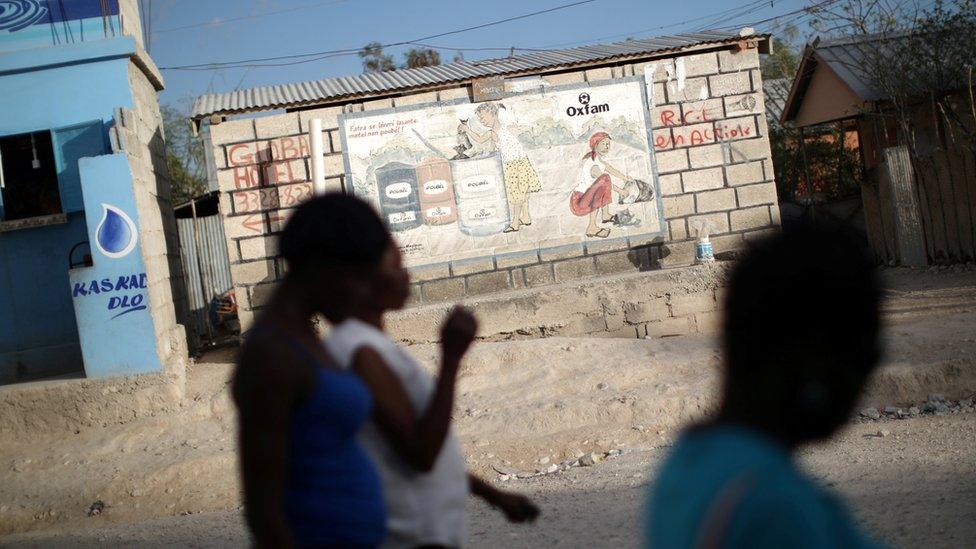
An Oxfam sign is seen in Corail, a camp for people displaced by the 2010 Haiti earthquake
Scandals in the past, such as the sexual exploitation of trafficked women in Bosnia by UN peacekeepers, a "sex for food" scandal which implicated the World Food Programme in Liberia, and the abuse of children in the Central African Republic by French peacekeepers have all raised questions about the UN's ability to prevent abuse, and to prosecute it when it does occur.
In fact, Judith Greenwood, Executive Director of the CHS (Core Humanitarian Standards) Alliance, says aid agencies and the UN do have "the tools" to tackle sexual abuse in the aid sector, although abuse committed by UN peacekeepers remains (at member states' insistence) the responsibility of the countries the peacekeepers come from.
Pointing out that the Oxfam Haiti scandal dates back to 2011, Ms Greenwood said a lot of good policy and practice had been adopted since then.
"There is an interagency task team that specifically looks at accountability to the affected population. All of our member organisations (all the major aid agencies, including Oxfam) have to have clear procedures in place to tackle exploitation and abuse."
Oxfam employee Widza Bryant discusses the Haiti allegations with the BBC
Meanwhile Unicef says any allegations of abuse of children in its care are referred to its executive director within 48 hours. They added: "We are training our staff continuously in this, and we are improving our assistance to victims."
The UN this week also responded sharply to Andrew MacLeod's suggestion that UN aid workers committing abuse could get away with it because they enjoyed diplomatic immunity.
"Let's be clear about this. The answer is no," tweeted the secretary general's spokesperson. "Sexual abuse is a crime. The UN does not and will not claim immunity in such cases."
But tweets and restatements of existing policy may not be enough to calm this debate, especially if there are more revelations of historic scandals.
Allow X content?
This article contains content provided by X. We ask for your permission before anything is loaded, as they may be using cookies and other technologies. You may want to read X’s cookie policy, external and privacy policy, external before accepting. To view this content choose ‘accept and continue’.
UN aid agencies are currently trying to deal with an unprecedented number of humanitarian crises, from Syria, to Yemen, to the Democratic Republic of Congo.
Privately senior UN officials are concerned that the headlines may lead to a substantial loss of public support, and a consequent major cut in funding.
That's an outcome that won't help anyone, they argue. And here, even UN critic Andrew MacLeod agrees.
"This is not an excuse to cut aid. This is an excuse to fix aid."
- Published12 February 2018
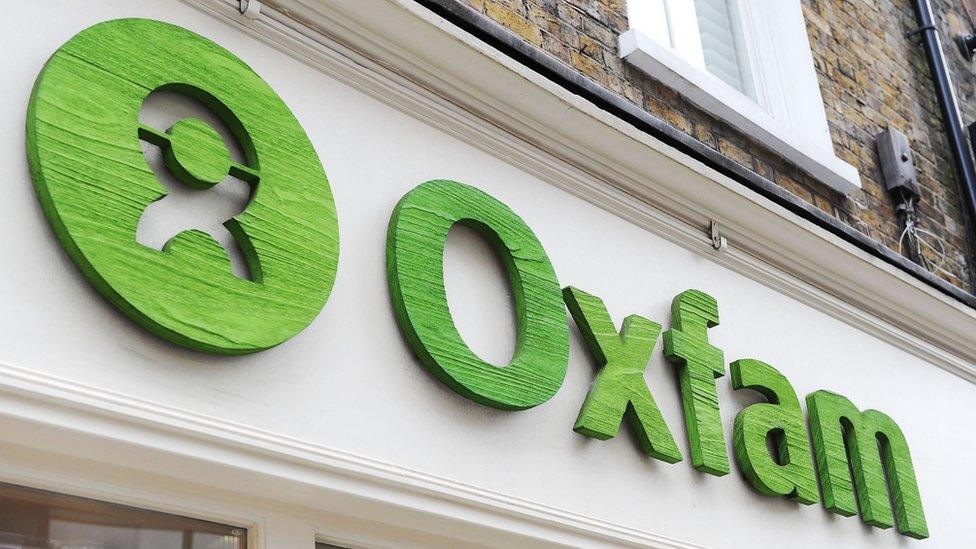
- Published10 February 2018
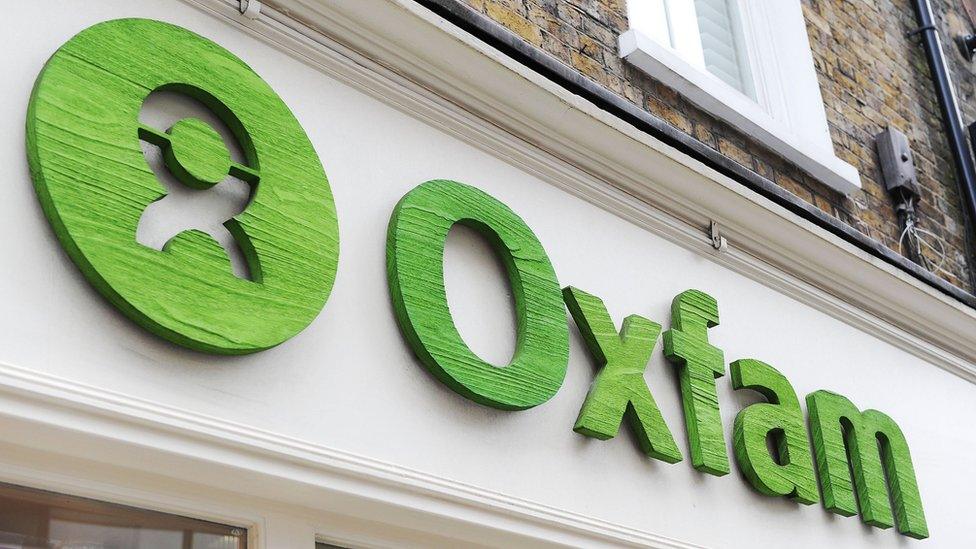
- Published12 February 2018
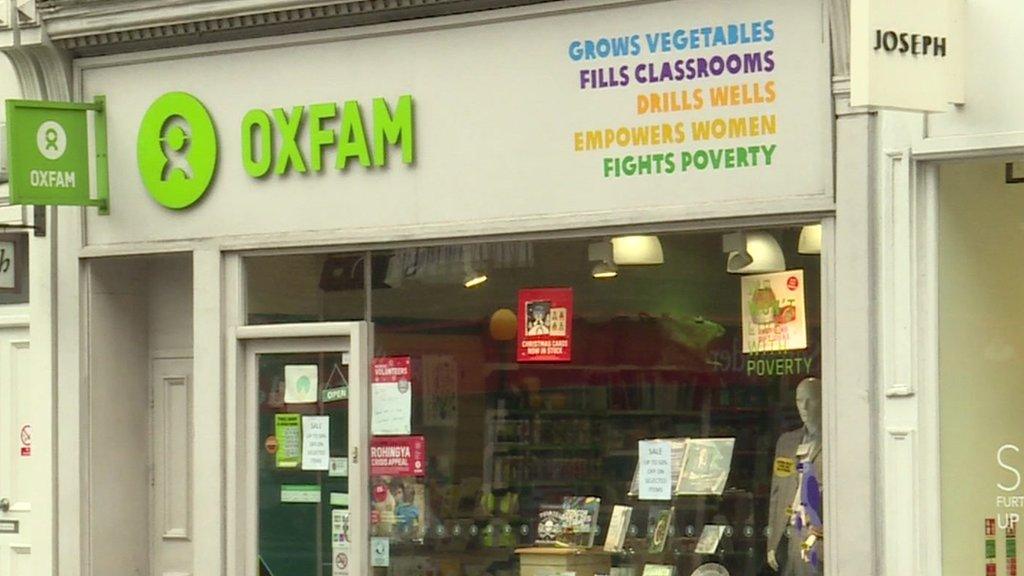
- Published13 February 2018
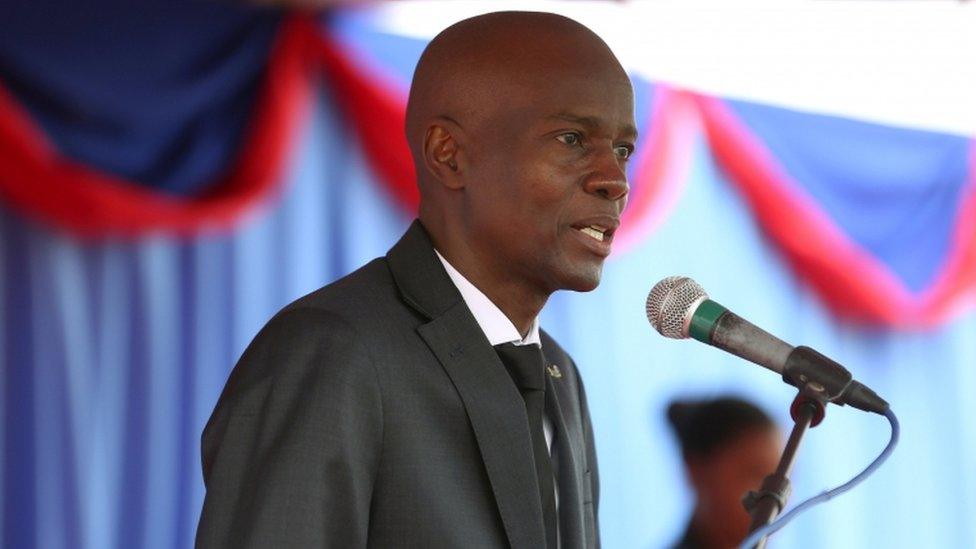
- Published12 February 2018
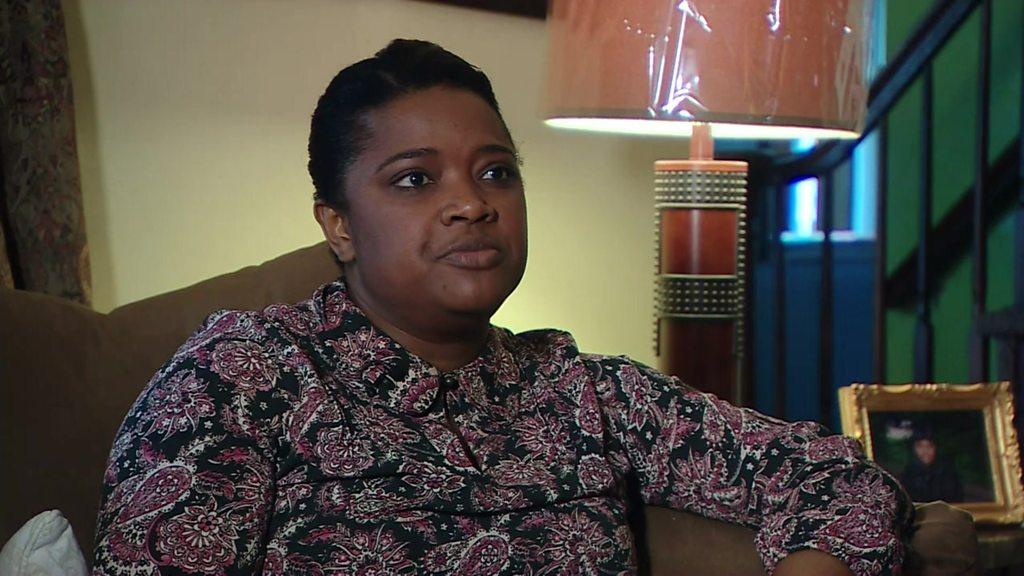
- Published12 February 2018
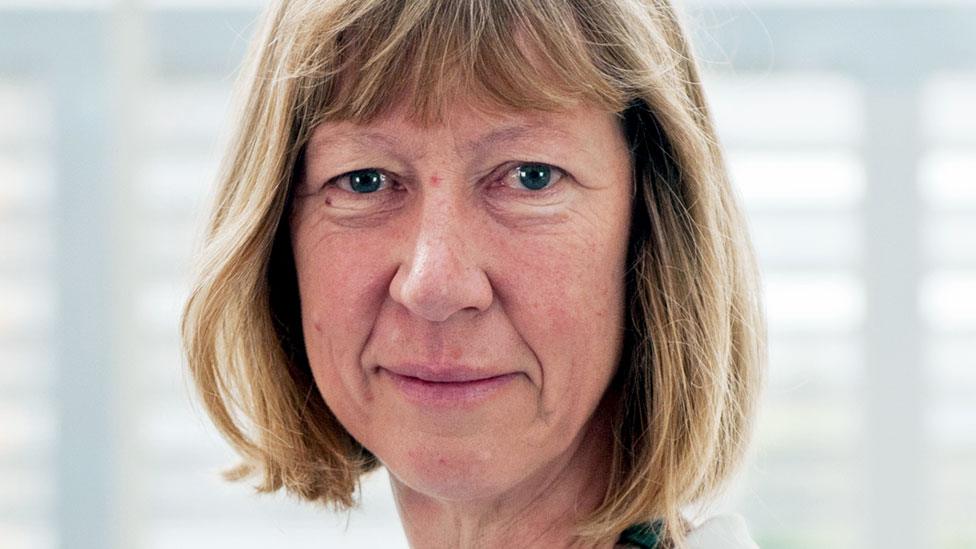
- Published21 May 2024
